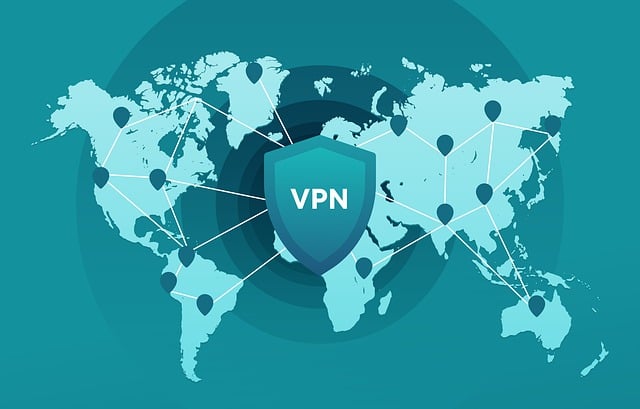In the age of digital surveillance and data breaches, maintaining online anonymity has become increasingly important. Whether you’re looking to protect your personal information, access geo-restricted content, or conduct business activities without revealing your identity, using the right tools is crucial. This article explores the best tools for anonymity, current trends, and practical applications, with a specific focus on the option to buy proxy services.
Virtual private networks (VPNs)
Virtual Private Networks, or VPNs, are among the most popular tools for achieving online anonymity. A VPN encrypts your internet connection and routes it through a server in another location, masking your IP address and making it difficult for third parties to track your online activities.
Trends in VPN usage:
- Increased use for streaming and accessing geo-restricted content.
- Growing concern over privacy leading to higher adoption rates.
- Corporate use for secure remote work connections.
Popular VPN services:
| VPN service | Key features | Pricing (Monthly) |
| NordVPN | High-speed servers, Double VPN | $11.95 |
| ExpressVPN | Strong encryption, 24/7 support | $12.95 |
| CyberGhost | User-friendly, Dedicated IP | $12.99 |
Proxy Servers
Proxies act as intermediaries between your device and the internet, routing your traffic through a different server. This can be particularly useful for bypassing content restrictions and maintaining anonymity.
When to buy proxy services:
- Accessing region-specific websites or content.
- Conducting sensitive business operations.
- Enhancing security for online transactions.
Types of proxy servers:
- HTTP proxies: Good for web browsing.
- SOCKS proxies: Versatile and used for various types of traffic, including emails and file transfers.
- Transparent proxies: Used for network-level filtering but do not hide your IP address.
Comparison of proxy services:
| Service type | Anonymity level | Speed | Best use case |
| HTTP Proxy | Medium | High | Basic web browsing |
| SOCKS Proxy | High | Medium | Torrenting, email |
| Transparent Proxy | Low | High | Content filtering |
Tor network
The Tor network is a decentralized network of servers (nodes) that anonymizes your online activity by routing it through multiple nodes before reaching its destination. This makes it extremely difficult to trace the origin of the traffic.
Practical uses of Tor:
- Accessing the deep web and dark web.
- Secure communication for activists and journalists.
- Enhanced privacy for regular internet users.
Advantages of Tor:
- High level of anonymity.
- Free to use.
- Strong resistance to traffic analysis.
Disadvantages of Tor:
- Slower connection speeds.
- Can be blocked by some websites and services.
Anonymous browsers
Anonymous browsers, such as the Tor Browser, are specifically designed to provide users with a high level of privacy. These browsers prevent tracking, block third-party cookies, and often include built-in VPN or proxy functionality.
Key features:
- No tracking or logging of user activities.
- Encryption of internet traffic.
- Ability to access blocked or censored websites.
Comparison of anonymous browsers:
| Browser | Built-in tools | Main benefit |
| Tor Browser | Tor Network | High anonymity, free |
| Brave Browser | Ad-blocking, HTTPS | Speed, privacy controls |
| Epic Privacy | Encrypted Proxy | Ease of use, privacy focus |
Secure communication tools
For those concerned with the privacy of their communications, encrypted messaging apps are essential. These tools ensure that only the intended recipient can read the messages.
Popular encrypted messaging apps:
- Signal: Known for its strong encryption and privacy features.
- WhatsApp: Widely used with end-to-end encryption.
- Telegram: Offers encrypted secret chats.
Key Features Comparison:
| App | Encryption type | Additional features |
| Signal | End-to-end | Disappearing messages |
| End-to-end | Wide user base, multimedia | |
| Telegram | Client-server/server-client | Secret chats, cloud storage |
Secure operating systems
Secure operating systems are designed with privacy and security in mind. These systems often include features like built-in encryption, secure boot, and isolated environments for running applications.
Top secure operating systems:
- Tails: A live operating system that runs from a USB stick, leaving no trace.
- Qubes OS: Uses virtualization to isolate different tasks for security.
- Whonix: Combines Tor and Debian for strong anonymity.
Features of secure operating systems:
- Minimal data footprint.
- Enhanced protection against malware.
- Tools for secure communications.
Comparison of secure operating systems:
| OS | Anonymity level | Ease of use | Key feature |
| Tails | High | Medium | No trace left behind |
| Qubes OS | High | Low | Isolation of tasks |
| Whonix | High | Medium | Combines Tor and Debian |
Conclusion
Maintaining online anonymity requires a combination of tools and practices. Whether you choose to buy proxy services, use a VPN, or rely on secure operating systems and browsers, each tool offers unique benefits that cater to different needs. Staying informed about the latest trends and technologies in online anonymity is essential for protecting your privacy in an increasingly connected world.
Frequently asked questions
What is the difference between a VPN and a proxy?
A VPN encrypts all your internet traffic and routes it through a secure server, while a proxy only reroutes specific types of traffic and does not typically encrypt it.
Why should I buy proxy services?
Buying proxy services can provide higher speeds, better reliability, and additional features compared to free proxies, making them ideal for business use, streaming, and accessing restricted content.
Can I use Tor and a VPN together?
Yes, using Tor with a VPN can enhance your anonymity, as it adds an extra layer of encryption and obscures your IP address from the Tor entry node.
Are encrypted messaging apps truly secure?
Encrypted messaging apps like Signal and WhatsApp use strong end-to-end encryption, making it extremely difficult for anyone other than the intended recipient to access the messages.











Leave a Reply